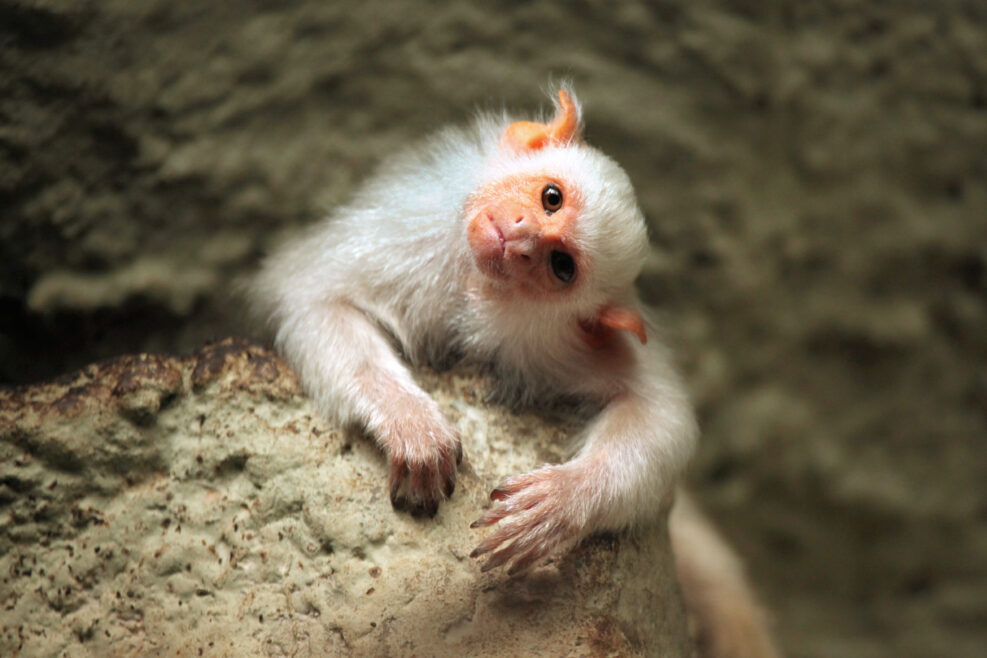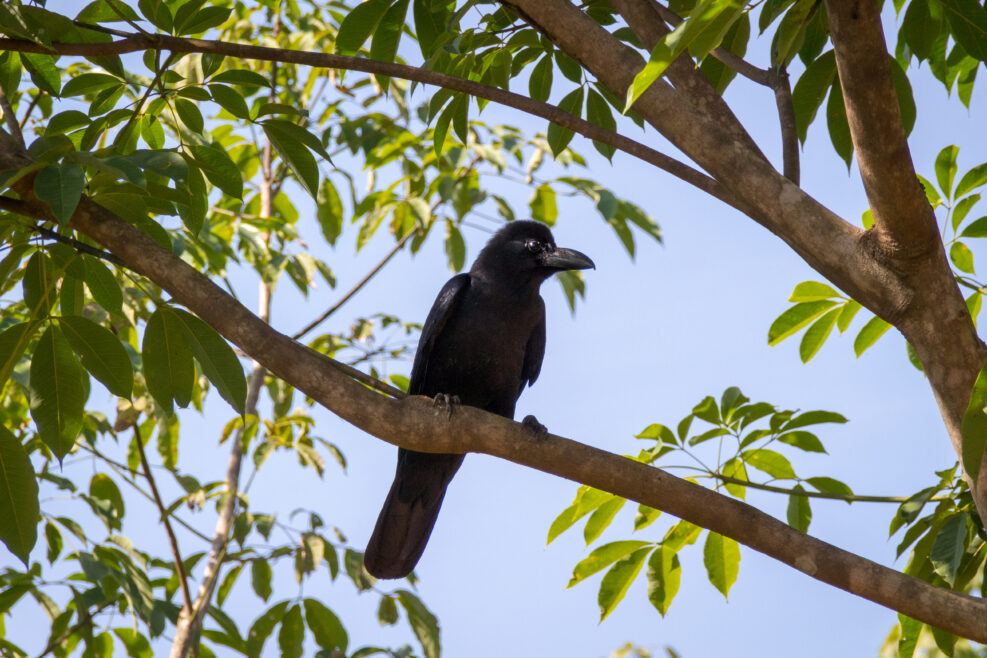
TagAnimal Intelligence


Why Do Researchers Wonder Whether Animals Have Personalities?
Every friend of dogs, cats, or birds knows what some researchers struggle to prove. Let’s take a look at what they foundRecently, a research team announced that marmosets — small highly social New World monkeys — display personality traits, whether they are wild or captive: Some individuals were fast to approach any novelty, while others were more careful; hereby showing a similar pattern to humans: for instance, some humans enjoy trying out new restaurants, whereas others prefer to eat in their favorite restaurant. What is more interesting, when comparing personality traits of monkeys in Austria across four years, the authors found that these monkeys are quite consistent in their personality traits (e.g., those that are explorative when they are younger, stay similarly explorative four years afterwards). University of Vienna, “Marmoset Monkeys Have Personalities Too” at Neuroscience News The paper is open Read More ›

We Knew Crows Were Smart But They Turn Out To Be Even Smarter
We are only beginning to scratch the surface of the mysteries of animal intelligenceRecently, some researchers have claimed that crows — already known to be smart — are even conscious: Nieder’s experiment showed that the birds were actively evaluating how to solve a particular problem they were confronted with. In effect, they were thinking it over. This ability to consciously assess a problem is associated with the cerebral cortex in the brains of humans. But birds have no cerebral cortex. Nieder found that in crows, thinking occurs in the pallium—the layers of gray and white matter covering the upper surface of the cerebrum in vertebrates. Other studies support the notion that the bird brain can, in principle, support the development of higher intelligence. This idea had been dismissed in the past due to Read More ›

Why a Science Fiction Writer Thinks Life Is More Than Just Matter
Many animals and even bacteria show behavior that smacks of thinking, he says
Can Animal Minds Rival Humans Under the Right Circumstances?
Are we just not being fair to animals, as some researchers think?In 2007, Sue Savage-Rumbaugh, a psychologist and primatologist , published a paper in the Journal of Applied Animal Welfare Science with a remarkable citation: Sue Savage-Rumbaugh, Kanzi Wamba, Panbanisha Wamba, and Nyota Wamba, “Welfare of Apes in Captive Environments: Comments on, and by, a Specific Group of Apes,” Journal of Applied Animal Welfare Science 10:1 (2007): 7–19. What is remarkable about the paper is not the text but the authorship statement. Kanzi, Panbanisha, and Nyota Wamba are not co-author colleagues—they’re apes, bonobos to be specific. Dr. Savage-Rumbaugh (right) is a controversial scientist who believes that animals have intellectual powers that can, under the right circumstances, rival the human intellect. She included her ape subjects as co-authors on the paper because Read More ›

Mirror, Mirror, Am I a Self?
Scientists ponder, how would animals show self-awareness?One controversy in animal psychology centers on whether or not an animal can recognize itself in a mirror. But a number of scientists are beginning to doubt that the mirror test shows animal self-awareness.
Read More ›
Did a fish just show self-awareness?
What if the whole question is founded on a mistake about the nature of the mirror test?Overall, it’s a curious outcome for the mirror test. Those who felt reassured by close kinship with chimpanzees reacted quite differently when offered close kinship with fish.
Read More ›
The Real Reason Why Only Human Beings Speak
Language is a tool for abstract thinking—a necessary tool for abstraction—and humans are the only animals who think abstractlyIn his discussion of why only humans have language, science writer Tom Siegfried gets a lot right, but he misses the crucial reason.
Read More ›
What Do Thoughts Weigh?
Robert Marks thrashes out with Michael Medved why our minds are neither meat nor softwareIn a wide-ranging conversation, Robert Marks and Michael Medved tackle questions like what it means for something to be not just unknown but “unknowable.”
Read More ›
Is Salad Murder?
A Darwinian biologist wrestles with the significance of plant intelligenceIf plants can sense things and communicate with each other, even though they lack a mind or brain, should they have rights? In an age of sometimes violent animal rights activism, that’s not an idle question. Plant physiologist Ulrich Kutschera, author of Physiology of Plants. Sensible Vegetation in Action (January 2019, German), talked about it in a recent interview: This is a serious issue which is related to plant intelligence. In April 2009, the Swiss Parliament discussed the topic of “plant ethics” and proposed to attribute to plants a kind of “Würde”, which can be translated as “dignity” (3). As a consequence, some radical plant ethics-activists have distributed T-shirts and other propaganda material with the slogan “Salad is murder”. Despite Read More ›

If Computers Thought Like Fruit Flies, They Could Do More
But even with more sophisticated buzz, there remain "non-computable" things that a computer cannot be programmed to thinkRecently, researchers discovered that fruit flies use a filter similar to a computer algorithm to assess the odors that help them find fruit, only the flies’ tools are more sophisticated: When a fly smells an odor, the fly needs to quickly figure out if it has smelled the odor before, to determine if the odor is new and something it should pay attention to,” says Saket Navlakha, an assistant professor in Salk’s Integrative Biology Laboratory. “In computer science, this is an important task called novelty detection. Computers use a Bloom filter for that, Navlakha, an integrative biologist, explains: When a search engine such as Google crawls the Web, it needs to know whether a website it comes across has previously Read More ›

How is Human Language Different from Animal Signals?
What do we need from language that we cannot get from signals alone?
Dogs Are Not as Intelligent as Seals?
That doesn't sound right to you? Putting aside the hoopla around IQ tests for furries and flipperies, there is a serious science question about what “intelligence” really is
Yes, Even Lizards Can Be Smart
If you catch them at the right time. But can we give machines what the lizard has by nature?